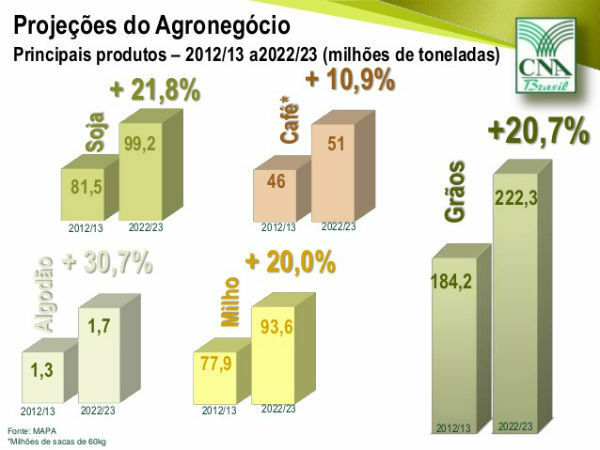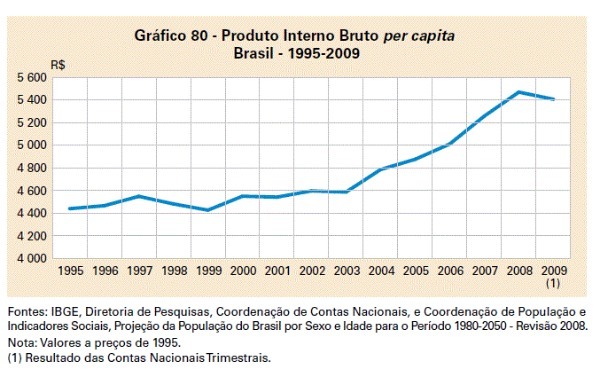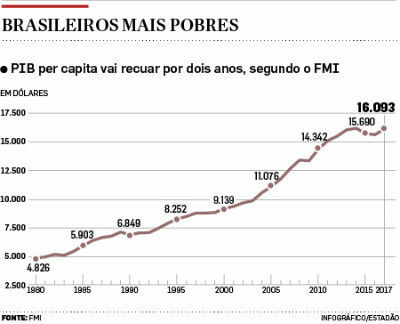Inflation is a term used in the field of economics that represents a continuous and widespread increase in prices of goods and services in an economic system.
It is normally represented by a percentage (%), which indicates the price variation of all products offered on the market
For example, if in a certain period it is observed that the price of a kilo of tomatoes has increased, it is verified that there was inflation in the price of the product. However, it is important to know that the final inflation index is measured based on all products that had verified prices. Thus, if the calculated inflation was 0.85%, it means that prices increased by an average of 0.85%.
The notion of economic inflation emerged in 1838 and means the increase in prices that happens persistently and results in a decrease in the purchasing power of a currency. That means, the higher the inflation rate, the lower the purchasing power of money.
Causes of Inflation
When inflation occurs, price increases are seen in the vast majority of goods and not just some. There is a sharp decrease in purchasing power due to several factors, such as wage income that does not change.
One of the causes of inflation is the increase in the issuance of paper money by the government to cover state expenses. When this happens, there is a greater volume of money in circulation in the market, but there has been no wealth creation or increased production. In these cases, a greater amount of money is required to purchase the same amount of product, resulting in inflation.
Other causes of inflation are related to the exaggerated increase in the price of a basic good, such as electricity or oil, or even by the increase or excess of consumption, increasing the demand for the product and, consequently, increasing its price.
When the price of these goods is high, there is an impact on the economy, which ends up influencing the increase in the price of goods in general.
Types of Inflation
Economics divides inflation into four different types, according to its cause. Learn more about each of these types:
- demand inflation: is characterized by excess demand over supply. This type of inflation occurs mainly when there is an increase in the purchasing power of citizens that is not accompanied by the market, that is, when there is not enough availability of goods to meet the purchase demand of the population.
- Cost inflation: this type of inflation usually happens when there is an increase in the cost of the raw material used to produce a certain product. When this happens, it is common for this increase to be passed on to consumers by raising the value of the final product placed on the market.
- inertial inflation: It is also known as psychological inflation, because it is not necessarily caused by a change in demand or supply. It often happens because people believe the price rise will continue. It can occur after long periods of inflation, when the economic market and traders raise prices because they believe inflation is still at high levels. However, this price increase made in advance leads to a further increase in inflation.
- structural inflation: It is similar to cost inflation, but the price rise is due to a lack of efficiency of the infrastructure involved in the production process of a specific economic type.
Read more about the meaning of Purchasing power.
Difference between inflation and deflation
Inflation and deflation are concepts related to rising or falling prices. As seen, the inflation it is the increase in the price of products offered in the market. already the deflation it is the anti-inflation process.
In the case of deflation there is a price level reduction of goods and services and the value (purchasing power) of money is increased. It is a process normally verified in periods of economic recession (crisis).
However, it is important to mention that the price drop alone cannot be considered a positive factor. Excessive declines can also hurt the economy as consumers may be forced to wait longer to consume, especially given the prospect of even lower prices.
Thus, the ideal is for inflation to be low and controlled and for the prices of goods to remain stable, which allows for more predictability and economic planning.
Inflation and IPCA
The IPCA is the Consumer Price Index. It is used to check the variation in prices of products that are available on the market. According to the Central Bank of Brazil (BC) the IPCA is the official inflation marker in the country.
To calculate the index, the amounts spent on the cost of living of families with income up to forty minimum wages in the main capitals of Brazil are observed. The Index is measured every month by the Brazilian Institute of Geography and Statistics (IBGE).
Inflation and IGP-M
The IGP-M is the General Market Price Index, a marker used to monitor monthly and yearly changes in product prices and check inflation rates.
Through the IGP-M and the monitoring of inflation, it is possible to verify whether there is an increase or decrease in the purchasing power of the currency, that is, if it is in an economic moment of appreciation or devaluation.



